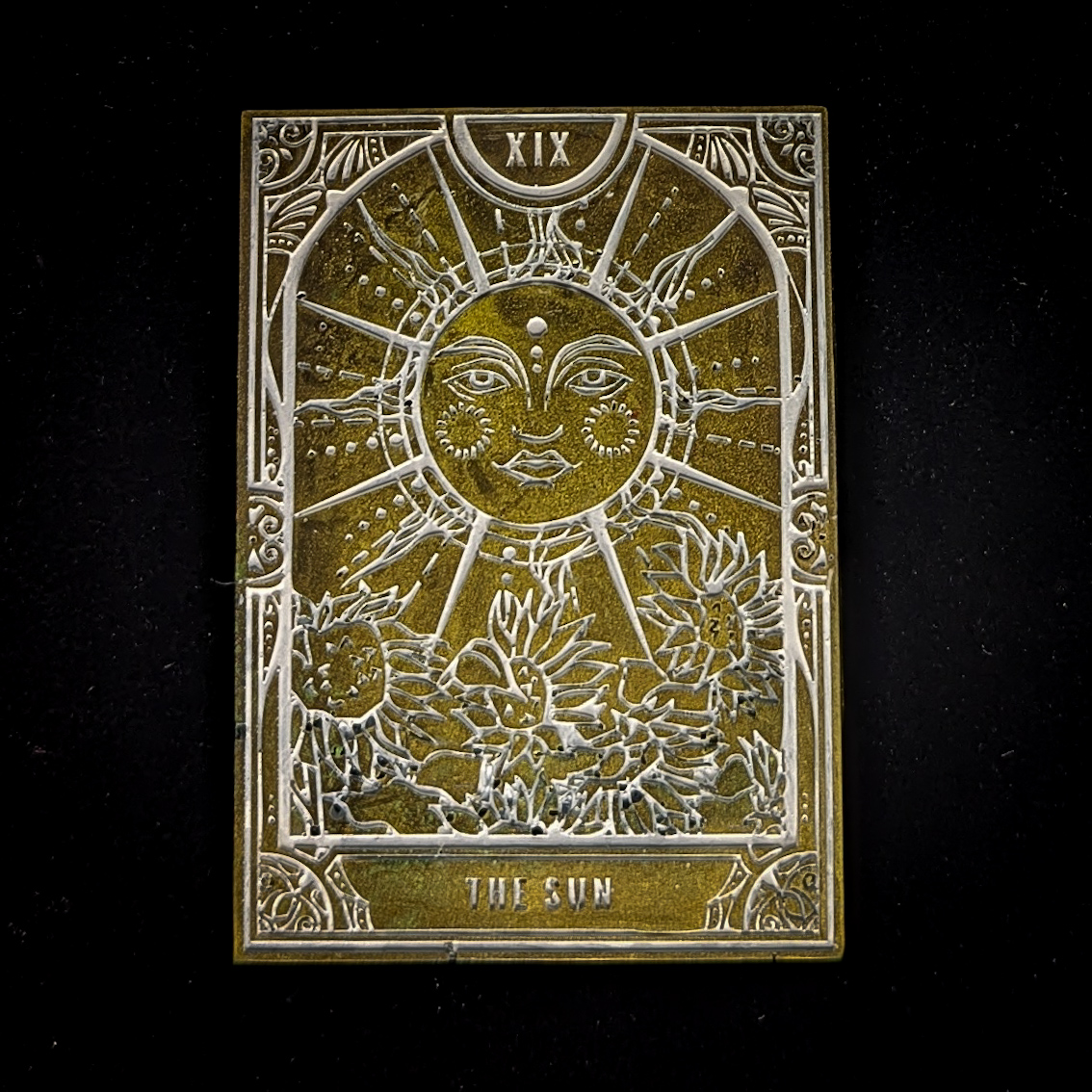The exploration of tarot as a tool for introspection and guidance invites a multifaceted examination, particularly through a Christian lens. The XIX card, commonly referred to as The Sun, emerges as a potent symbol within this dialog. Its luminous imagery carries connotations of success, joy, and enlightenment, but when viewed through the prism of Christian theology, it presents a rich tapestry of deeper meanings that provoke thoughtful contemplation.
In the realm of tarot, The Sun signifies vitality and clarity. It portrays a vibrant, sun-kissed figure basking in the brilliance of a radiant sun. This imagery encapsulates not only happiness but also the sense of divine presence and favor. For Christians, sunlight is often synonymous with God’s grace, illuminating the path ahead and dispelling the shadows of doubt and despair. Thus, The Sun in the tarot card pantheon can be perceived as a manifestation of God’s illuminating love and guidance.
The immediate promise embedded in The Sun card is its capacity to facilitate a transformative shift in perspective. In a world layered with challenges, heartaches, and uncertainties, this card serves as a beacon of hope that encourages individuals to rise above their quotidian struggles. Christians believe in the ultimate triumph of light over darkness, akin to the resurrection narrative central to their faith. This parallel becomes evident when aligning the essence of The Sun with the Christian experience of salvation and renewal. Just as Christ brought forth new life and hope, The Sun card inspires its bearer to seek out positivity and enlightenment amidst tribulations.
Curiously, The Sun card beckons believers to consider the idea of personal reflection. It urges individuals to internalize their experiences and emotions, fostering a deeper understanding of their spiritual journey. The light metaphorically radiates the truth within oneself—a guiding principle in Christianity that emphasizes knowing oneself in light of Christ’s teachings. The notion of self-exploration dovetails with the Christian call to repentance and renewal, encouraging adherents to comprehensively examine their lives and make amends toward a more Christ-like existence.
Moreover, The Sun card is imbued with the assurance of success. In many aspects of life, be it spiritual, emotional, or relational, a sense of achievement can amplify one’s faith. The Christian doctrine echoes this sentiment through the scriptural promise that those who seek God earnestly will find Him, and through Him, the paths of success and fulfillment become illuminated. The alignment of this card with notions of divine favor instills confidence; it assures seekers that they are on the right path, blessed with divine encouragement as they traverse their life’s journey.
Furthermore, the imagery of children playing beneath the sun in The Sun card serves as a poignant reminder of the simplicity, innocence, and joy that faith can bring into life. Jesus famously championed the virtues of childlike faith, emphasizing the importance of returning to purity and simplicity in our relationship with God. This theme of joyous play is quintessential in the Christian perspective, where a life infused with gratitude and joy is viewed as a reflection of divine love. Thus, The Sun card urges Christians to embrace joy and spontaneity, allowing their faith to blossom like flowers under the nurturing rays of sunlight.
Yet, alongside these jubilant themes lies an invitation to grapple with the shadow side of illumination. The sun, while bringing warmth and clarity, can also be blinding. It beckons believers to confront and address their flaws, weaknesses, and the sins that may cloud their enlightenment. This duality is often explored in biblical contexts, where the light signifies truth that can simultaneously unveil harsh realities. Consequently, The Sun card nudges the faithful to recognize the necessity of confronting their darker aspects to attain genuine spiritual growth and maturity.
This invitation to navigate both light and shadow fosters resilience. In the Christian faith, trials and tribulations are viewed not merely as obstacles but as sanctifying experiences that cultivate depth and character. The insight offered by The Sun card resonates with this theology, which asserts that from challenges emerges wisdom and grace. It constitutes a promise—the assurance that hardships will yield fruit in due season, eventually leading to a more profound intimacy with the divine.
Intriguingly, the concept of enlightenment as represented by The Sun also elicits a sense of urgency regarding the call to act compassionately and spread light to others. As individuals bask in the warmth of divine favor, Christians are reminded of their responsibility to share the illumination with counterparts. This call to action invigorates believers to engage in acts of kindness, charity, and support—reflecting Christ’s love and compassion in the world. Thus, the proactive nature of The Sun card transcends mere personal joy, urging a broader commitment to service and love within the community.
Ultimately, the XIX card, The Sun, encapsulates an array of meanings steeped in both personal growth and communal responsibility. As it promotes a shift in perspective, it also sparks curiosity regarding one’s deeper calling and purpose within the context of faith. In navigating life’s journey, the truths and insights derived from The Sun can illuminate paths previously obscured by doubt, encouraging a vivid embrace of faith, joy, resilience, and the profound interconnectedness of all creation. Thus, The Sun stands not just as a symbol of happiness but as an instructional guide illuminating the intricate dance of light, shadow, and everything in between in the sacred journey of life.







Leave a Comment